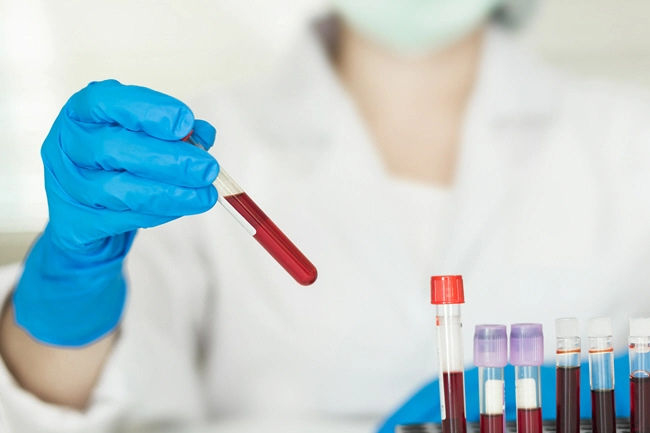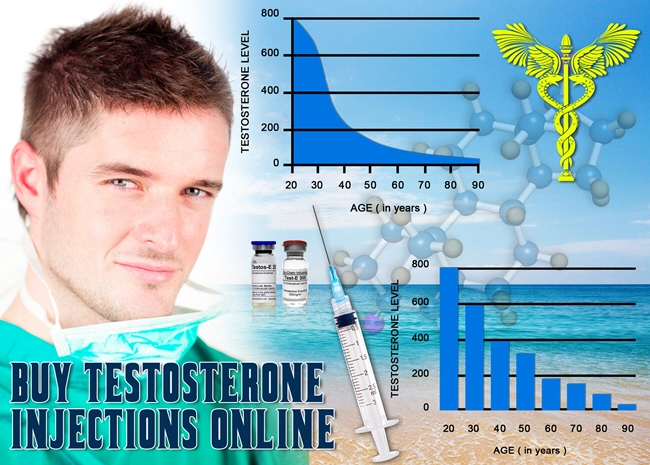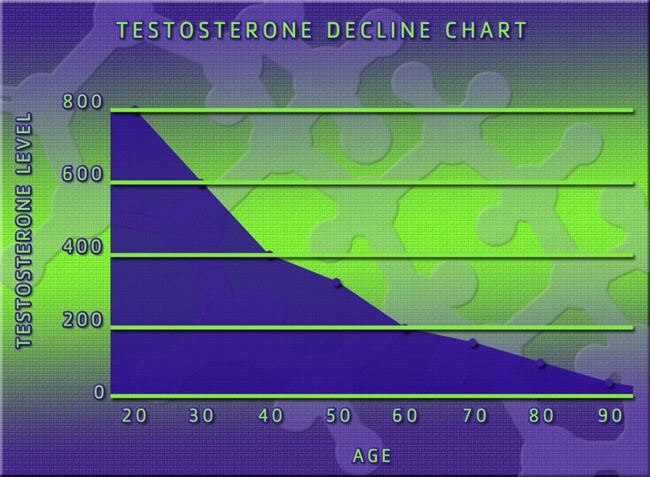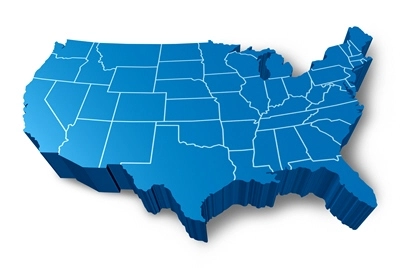
 Testosterone is the master hormone of sexual desire and libido for both men and women. While men produce 10-20 times more Testosterone than women, it still has important effects on female physiological function, especially when it comes to sex. Testosterone is also shown to have a far-reaching impact on human behavior. Studies suggest that Testosterone Levels are associated with higher levels of risk-taking, confidence, and aggression among men. For that reason, it's logical to infer that Testosterone has strong effects on sexual behavior in both sexes. A recent study explores how Testosterone may affect an individual's desire to mate with multiple partners.
Testosterone is the master hormone of sexual desire and libido for both men and women. While men produce 10-20 times more Testosterone than women, it still has important effects on female physiological function, especially when it comes to sex. Testosterone is also shown to have a far-reaching impact on human behavior. Studies suggest that Testosterone Levels are associated with higher levels of risk-taking, confidence, and aggression among men. For that reason, it's logical to infer that Testosterone has strong effects on sexual behavior in both sexes. A recent study explores how Testosterone may affect an individual's desire to mate with multiple partners.
Natsal-3 Sex Study Reveals New Information on Human Sexuality
This study was published in the Journal of Sex Research and uses data collected from the 3rd British National Survey of Sexual Attitudes and Lifestyles, abbreviated Natsal-3. The study was a collaborative effort among the National Centre for Social Research, the University of Manchester, UCL, and the London School of Hygiene and Tropical Medicine.
While it's easy to make hypotheses about how Testosterone impacts sexual behavior, it's harder to test those hypotheses with scientific rigor. This study is special because it's the first of its kind to link male and female sexual activity to Serum Testosterone Levels encapsulating a large general population. In the Natsal-3, scientists took Testosterone Samples from four thousand adults via saliva. Participants also completed questionnaires that asked various questions about the individual's sexual behavior and attitudes. The goal of the study was to find out how Testosterone impacted sexual proclivity.
Testosterone, Sexual Desire Masturbation, and Number of Sex Partners
Researchers discovered strong links between circulating Testosterone and the way that both men and women expressed their sexuality. In men, High Testosterone was linked to recent intercourse with a woman, and it was also correlated with having multiple sexual relationships simultaneously over the prior five years. Women with higher-than-average Testosterone were more likely to have sexual experiences with other women and were more likely to have recently masturbated. They were also likely to masturbate more often. Interestingly enough, elevated Testosterone Levels did not impact heterosexual activity in women.
This analysis of the Natsal-3 used data from 3,722 subjects—2123 women and 1599 men. Participants ranged in age from 18 to 74. Those that had sex with at least one other person in the past year answered various questions about their sexual desire and function. Researchers were interested in what influenced people to have more or less sex. They were asked about their passion for sex and their ability to have healthy sex. They asked questions regarding the type of sexual activity participants had engaged in over the last month, year, five years, and throughout their whole lives.
Individuals were also asked their feelings about different types of sexual interaction, including one-night stands. Researchers hypothesize that women could have different motivations and feelings about sex, which lead them to masturbate more often but not necessarily have sex with more than one partner.
Male and Female Sex Differences Associated with Testosterone
It's rather universally understood that Testosterone is the engine of libido in men. It's also generally accepted that Testosterone is important for women's sexuality. In spite of this apparent truth, it's been fairly difficult to scientifically quantify how Testosterone promotes sexual desire in males. The mechanisms behind women's sexuality are even more obscure.
One of the main roadblocks to our scientific understanding of how Testosterone influences libido is that there has been little time, money, or man-hours invested in studying this connection. The assumptions have been made, but there is a dearth of data collected to attempt to prove those hypotheses. This study is important because it aims to fill that gap in our knowledge of how Testosterone affects sexual activity, especially among women.
Most research to date regarding Testosterone and sex has involved physical aspects of sexual function. In men, the focus is on things like sexual performance. In women, the focus is on reproductive functions like menstruation.
We understand how men and women differ sexually from a sociological perspective quite well, but there has been little research designed to connect the dots between the actions of men and women and how hormones and physiology influence those actions. This study begins to bridge the gap between physiological function and the human experience. Psychological and social factors play a powerful role in how the sexes express their sexuality, and it's time to investigate how our hormones influence these human trends.
Contact Us Today For A Free Consultation
Dear Patient,
Once you have completing the above contact form, for security purposes and confirmation, please confirm your information by calling us.
Please call now: 1-800-380-5339.
Welcoming You To Our Clinic, Professor Tom Henderson.

- LabCorp Announces a Change to the Testosterone Reference Range [Last Updated On: April 16th, 2025] [Originally Added On: June 23rd, 2019]
- Important Facts About Testosterone Therapy Before Buying [Last Updated On: April 18th, 2025] [Originally Added On: July 13th, 2019]
- Soy: Does it Lower Testosterone? [Last Updated On: October 18th, 2024] [Originally Added On: August 30th, 2020]
- Testosterone Treatments May Successfully Reverse Type-2 Diabetes in Some Men [Last Updated On: April 15th, 2025] [Originally Added On: November 13th, 2020]
- Testosterone Replacement Therapy (TRT) May Prevent Heart Attacks and Diabetes [Last Updated On: April 21st, 2025] [Originally Added On: November 17th, 2020]
- Did You Know? Recent Studies Have Confirmed the Link Between Low Testosterone (“Low-T”) and Depression. [Last Updated On: April 17th, 2025] [Originally Added On: January 10th, 2021]
- New Study Finds Testosterone Does Not Increase Your Heart Attack Risk [Last Updated On: April 14th, 2025] [Originally Added On: January 11th, 2021]
- The Great Testosterone Debate [Last Updated On: April 20th, 2025] [Originally Added On: January 14th, 2021]
- Testosterone Replacement Therapy Lowers Heart Attack Risk [Last Updated On: April 19th, 2025] [Originally Added On: January 18th, 2021]
- New Study Says: The Benefits of Testosterone Replacement Therapy Outweigh The Risks [Last Updated On: April 22nd, 2025] [Originally Added On: January 19th, 2021]
- Male Menopause. Fact or Fiction ? [Last Updated On: April 23rd, 2025] [Originally Added On: January 20th, 2021]
- Testosterone: How Much Do You Really Know About This Masculine Hormone? [Last Updated On: October 6th, 2024] [Originally Added On: February 9th, 2021]
- Low-T: What are healthy levels of Testosterone and why is it difficult to measure? [Last Updated On: September 11th, 2025] [Originally Added On: April 3rd, 2021]
- Testosterone Therapy May Be Good for the Heart if You Have Low-T [Last Updated On: May 3rd, 2025] [Originally Added On: July 21st, 2021]
- A Recent Study Concludes: Testosterone DOES NOT Cause Prostate Cancer [Last Updated On: September 14th, 2025] [Originally Added On: August 16th, 2021]
- In the Battle Against Aging, When do the Risks Outweigh the Rewards? [Last Updated On: April 4th, 2025] [Originally Added On: August 18th, 2021]
- New Study Concludes: Boosting Testosterone Levels Lowers Men's Death Risk [Last Updated On: May 11th, 2025] [Originally Added On: August 20th, 2021]
- Testosterone Replacement Therapy Slows Prostate Cancer! [Last Updated On: April 2nd, 2025] [Originally Added On: September 13th, 2021]
- Research proves that Testosterone Therapy Boosts Fertility! [Last Updated On: April 5th, 2025] [Originally Added On: September 26th, 2021]
- Free Testosterone and Sex Hormone-Binding Globulin [Last Updated On: April 6th, 2025] [Originally Added On: October 15th, 2021]
- Testosterone Does Not Cause Heart Attacks [Last Updated On: April 7th, 2025] [Originally Added On: October 15th, 2021]
- Testosterone and Women [Last Updated On: April 8th, 2025] [Originally Added On: October 15th, 2021]
- Testosterone and Metabolic Syndrome [Last Updated On: April 3rd, 2025] [Originally Added On: October 15th, 2021]
- Testosterone and Disease Prevention [Last Updated On: March 31st, 2025] [Originally Added On: October 15th, 2021]
- Judge Vacates $140 Million Verdict in Testosterone Lawsuit [Last Updated On: April 1st, 2025] [Originally Added On: October 15th, 2021]
- Testosterone and Estrogen [Last Updated On: April 9th, 2025] [Originally Added On: October 16th, 2021]
- Testosterone and Aging [Last Updated On: April 10th, 2025] [Originally Added On: October 16th, 2021]
- Testosterone Replacement Therapy (TRT) Benefits [Last Updated On: April 11th, 2025] [Originally Added On: October 16th, 2021]
- Testosterone and Male Menopause [Last Updated On: March 30th, 2025] [Originally Added On: October 16th, 2021]
- Testosterone Battles Obesity [Last Updated On: March 29th, 2025] [Originally Added On: October 16th, 2021]
- Why You Need Testosterone Replacement Therapy [Last Updated On: May 14th, 2025] [Originally Added On: October 16th, 2021]
- Testosterone FAQ's [Last Updated On: May 13th, 2025] [Originally Added On: October 25th, 2021]
- Growth Hormone and The Thyroid Gland [Last Updated On: April 24th, 2025] [Originally Added On: November 19th, 2021]
- How Does Masturbation Affect Testosterone Levels? Exploring the Science [Last Updated On: May 24th, 2025] [Originally Added On: March 27th, 2022]
- Testosterone Therapy Increasingly Used to Help Men Take Control of Aging [Last Updated On: May 25th, 2025] [Originally Added On: May 30th, 2022]
- The many benefits of Testosterone Replacement Therapy (TRT) [Last Updated On: November 1st, 2025] [Originally Added On: June 13th, 2022]
- Tlando Testosterone - A Brand New Way to Treat Low-T Safely with a Testosterone Pill [Last Updated On: May 28th, 2025] [Originally Added On: July 12th, 2022]
- Safe Tlando Testosterone Changes Landscape of Low-T Therapy [Last Updated On: May 30th, 2025] [Originally Added On: August 15th, 2022]
- Systems to Monitor Testosterone Replacement Therapy (TRT) [Last Updated On: October 12th, 2025] [Originally Added On: September 21st, 2022]
- Testosterone May Help You Keep Your Job (Or Find Another) [Last Updated On: June 12th, 2025] [Originally Added On: October 4th, 2022]
- Toxic Chemicals are Killing your testosterone…And your Manhood! [Last Updated On: October 28th, 2024] [Originally Added On: October 10th, 2022]
- A new study reveals that Testosterone improves body composition in men with low testosterone! [Last Updated On: October 22nd, 2025] [Originally Added On: October 17th, 2022]
- A former Mr. Olympia speaks about testosterone [Last Updated On: October 10th, 2025] [Originally Added On: November 8th, 2022]
- Testosterone Blockers Thwart Melanoma [Last Updated On: June 9th, 2025] [Originally Added On: December 11th, 2022]








